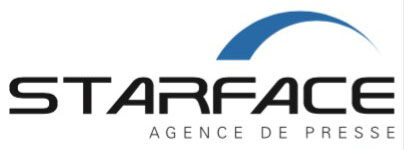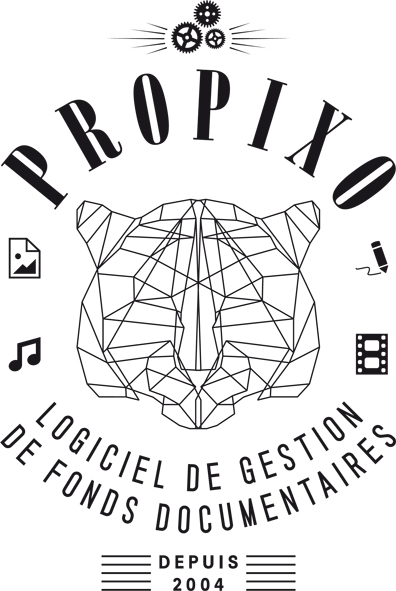 “I don’t think a journalist can die for his newspaper,” wrote Jean-François Chauvel, Patrick’s father, in A rebrousse-poil (Editions Olivier Orban, 1976), a book of reporting stories collected by Philippe Gildas. “If he happens to risk his life, it’s for himself, for some idea he has of his craft.” The final chapter of the book is named “As long as there are heroes…”
“I don’t think a journalist can die for his newspaper,” wrote Jean-François Chauvel, Patrick’s father, in A rebrousse-poil (Editions Olivier Orban, 1976), a book of reporting stories collected by Philippe Gildas. “If he happens to risk his life, it’s for himself, for some idea he has of his craft.” The final chapter of the book is named “As long as there are heroes…”
Good fairies hover over the cribs of most children. Hovering over Patrick Chauvel’s crib were big bearded men, men of the world, smokers and drinkers, their breath still stinking of battle and the road. His grandfather was ambassador of France, his father a reporter for the AFP and
Le Figaro. His uncle was the filmmaker Pierre Schoendoerffer, who passed away last March 14, the same day he arrived in Dien Bien Phu, 58 years earlier.
Patrick Chauvel, who considered Schoendoerffer a father, brother and friend as much as an uncle, was finishing Les pompes de Ricardo Jésus at the time of the filmmaker’s death. He was reading the proofs of his book on Sarajevo and shooting a film on the anniversary of the siege of the city, with his friend Rémy Ourdan, a reporter for Le Monde. So it’s understandable if a few infelicities and approximations remain in the text. In any case, they don’t undermine the story.
Patrick was brought up on adventure: his father and uncle toured the Russian cabarets with their friend Joseph Kessel. If they stopped a little too long at one cabaret, they sat little Patrick in one of the red leatherette booths, where he nodded off amid the clouds of smoke and the clinking of glasses.
What do you expect a child who grew up in such an environment to do with his life? He went on to become, more than forty years ago, a Rapporteur de guerre (War Reporter), the title he chose for his first book.
“My father didn’t write enough,” Patrick Chauvel told me one Sunday afternoon on the patio of one of his favorite Pigalle bistros, Le Corso.
So Patrick is taking up the challenge. After Rapporteur de guerre was published in 1998 and sold 22,000 copies (according to his current publisher Philippe Robinet), he wrote a “fictionalized account”, Sky, which I consider to be his best book. The story of a friendship that begins in Vietnam and ends in American Indian territory, Sky is no longer in print but can still be found online.
“When you write a story, people ask you what’s made up,” says Chauvel. “When you write a novel, people ask you what’s true.”
Les pompes de Ricardo Jésus is the story of Patrick’s adventures in the 1970s and 80s, the period that the precedes the events recounted in Rapporteurs de guerre. The latter ends where the former begins, in Panama, the day he lay for four hours in the middle of an intersection. It was 95 degrees in the shade.
“But I was in the sun. My guts were hanging out and bullets were still flying, which is why it took so long for them to come get me. They operated on me. Once I had healed, the surgeons sent me a Polaroid of them posing in the operating room, holding a handful of my guts, making goofy faces and wearing flower-print hats… Can you believe it?”
Yes, Patrick, I believe you!
“You look like you’re dead.” Those are the opening words of Les pompes de Ricardo Jésus. Pierre Schoendeoerffer utters them upon seeing a photo of Patrick wounded in Cambodia in April 1974. Patrick wrote these lines as he took his first steps on crutches after taking “a bullet to the left ankle, a present from the Revolutionary Guards in Tabriz” in 1980…
Speaking of Patrick Chauvel’s injuries, Jean-François Leroy, director of the Festival Visa pour l’image in Perpignan, and a close friend who collected several remembrances of their numerous friends in common, said: “Patrick’s naked body is like a map to all the wars of the past forty years.”
“Pierre, you showed us the way, and you set the bar very high! So let’s go!” wrote Patrick Chauvel in the May issue of the monthly magazine Spectacle du Monde dedicated to Pierre Schoendoerffer.
“Let’s go.” These words sum up Patrick Chauvel’s life. For him, journalism is a way of life. It’s not some Taliban of information. Photography? The obligation to be the first in line, where it’s really happening. “I’m not a great photographer,” he says to those who will listen. “But now and then I do take great photos.”
When Jean-François Leroy asked him at Perpignan how it felt to be the on-set photographer for Schoendoerffer’s film Dien Bien Phu, he responded, “The difference between fiction and reality is that here I can finally take all the pictures that I missed in the field. Plus, it’s the first time I’ve made any money taking pictures of a war.”
The cover photo by Delphine Loyau shows Chauvel looking like a reporter, but also a little like some heavenly hobo. In Miami, eating lobster with some television colleagues, he gets up from the table as he hears a riot breaking out… “Frog, you’re nuts. For us, this is a job, we do it for the money!” For Patrick, journalism, photography, cinema, and writing aren’t just jobs. They’re genuine passions, reasons to live.
“He’s a living legend,” says the young photographer Corentin Fohlen, speaking to me from Brittany, where he is on vacation (sic). “I read his books, I saw him in Libya but didn’t say anything. I thought that he hadn’t noticed me. Then the other week I ran into him at the Négatif+ photo lab. He waved and said to me, ‘Don’t go to war, it’s too dangerous.’ Like every young photographer, I’m blown away by everything he does, but I’m not sure I want to live that kind of life.”
“These young photographers I saw in Egypt and Libya, they have no idea,” Patrick Chauvel tells me, back on the patio of Corso. “Every three of four years, I do an internship with the army’s medical service. You know, if you get a bullet in the thigh and it hits the femoral artery, you have five minutes to live. You have to open the wound with a knife if it isn’t already big enough. You stick your hand in and grab the artery. You can feel it throbbing between your fingers, and you have to put a clip on it to stop it from hemorrhaging. The guy might lose his leg, but not his life.”
Listening to Patrick Chauvel speak is just like reading Les pompes de Ricardo Jésus. Suddenly you feel like a kid reading adventure stories. It’s like having the Count of Monte-Cristo and the Three Musketeers dashing through your head.
Except that it smells like blood and shit, the sound of helicopters and rockets is unbearable, and after five Bloody Marys you can dive into the pool at the Hilton before you bleed out in the middle of an intersection. Except that this isn’t a novel. These are stories lived by the author. You shudder. You laugh out loud, then quietly, nervously. Every ten pages, you have to put the book down and take a deep breath.
There will be photographers who quibble over the quality of the prints at the exhibition, and journalists who point about some errors in his books, and editors-in-chief shrug their shoulders and grumble: “He’s out of control.”
But I urge you to read his books, see his photos, and come to listen when he speaks. He’s a man who is entirely free, who sacrificed everything for his passion to live History. That’s rare enough to not be missed.Dernière révision le 2024/03/03 a 7:15
- « The Stringer »
« Trang Bang, j’ai toujours l’impression que c’est arrivé hier » par David Burnett - 19 décembre 2025 - « The Stringer »
L’enfer est pavé de bonnes intentions,
mais ça reste l’enfer ! - 4 décembre 2025 - Patrimoine photographique de Sygma
Un jugement hors du bon sens,
enterre un scandale ! - 28 novembre 2025








